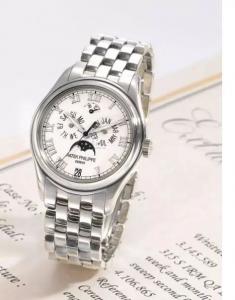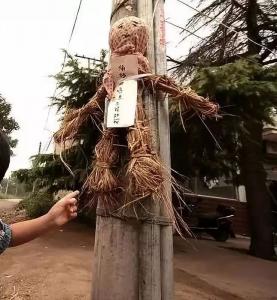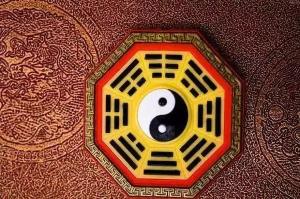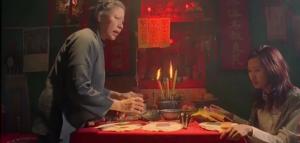Chinese culture is as old as they come (between 4,000 and 5,000 years old, depending on whom you ask), and as with any ancient culture, you’re going to have some pretty crazy and cool superstitions built in.
Every culture has its own unique set of superstitions (迷信 – mí xìn), and China is no different. Chinese culture is rich in beliefs, customs, and superstitions that vary greatly from those in the West. Let’s take a look at some of them and how they will bring you either good or bad luck. But bear in mind that some of those superstitions date back decades ago and some of China’s younger generations don’t believe in them anymore. To confirm this, I recently found an article that details some of China’s old beliefs.
1. When giving gifts in China, it is imperative that you never give someone a clock. This is due to the fact that “giving a clock” (送钟 – sòng zhōng) sounds similar to “bid farewell to someone on their deathbed” (送终 – sòng zhōng). As such, giving someone a clock basically means you’re sending them off to the great beyond.

What about gifting a clock made out of diamonds to someone in their 20s or early 30s? Would she/he reject it?
2. “It seems no one has mentioned the popular one: Chinese believe that if you eat ear wax, you’ll lose your voice. Most Chinese parents would remind the kids of this time after time, and I had been such a faithful believer of this piece and was extremely careful with that stuff until just a few years ago.”
I think this superstition raises an obvious question: Who would actually eat wax?? I really wonder who originally came up with this one and how they came about finding this out…
3. On New Year’s Day, we are not supposed to wash our hair because it would mean we would have washed away good luck for the New Year. Red clothing is preferred during this festive occasion. Red is considered a bright, happy color, sure to bring the wearer a sunny and bright future. It is believed that appearance and attitude during New Year’s sets the tone for the rest of the year. Children and unmarried friends, as well as close relatives are given little red envelopes with crisp one dollar bills inserted, for good fortune.
This one is still valid today. My mom has lived with this suspicion for so many years. Not just herself, but my whole family would never wash their own hair on that day. I’ve had fights with mom every year over this. She punished me for not washing hair for 7 days during Chinese New Year – I think good luck went away because of my dirty hair.
4. Chinese Ghosts Superstitions. Most Chinese / Taiwanese people are firm believers in ghosts. Even the most open-minded, well-traveled and internationally-conscious people in Taiwan will admit a slight belief that ghosts can and do affect the human world. A student I once had would literally freeze up in terror if she scarcely heard the word mentioned. The same student staunchly declared that she slept before midnight every night, because “that’s when the ghosts come out.
For people in Taiwan, ghosts mostly live in the water, particularly during the “Ghost Month” (usually in late summer). If you see people outside throwing paper into massive fires in the crushing summer heat, they’re not undergoing voluntary torture – that’s “ghost money” which they offer to the spirits during ghost month to keep them away.”
My grandma will actually worship ghosts every year, the food she tributes to them is much better than my dinner…
5. “The ancient Chinese invented umbrellas. One superstition the ancient Chinese believed about umbrellas is that you can never open your umbrella inside your house. If you do, this will bring bad luck into your house. If someone opened an umbrella, either on purpose or accidentally, the women grabbed their brooms and swept the bad luck out the door immediately!”
People used to dry my wet umbrellas, any bad luck they’ve found so far?

6. “Speaking of doors, the ancient Chinese believed the front door of their home should always face south. This brought benevolence into their home.
For those most Chinese superstitious, the Almanac should be consulted to find the best time to do important things. The Almanac would tell you that if the day is a good day or bad day to have a funeral, sweep the graves of ancestors, worship the dead or move an ancestor’s grave; start construction, move into a new house, visit friends or even travel north; get a haircut or cultivate plants and so on.”
Yeah, it is a famous superstition; people today still believe that the front door of their home should always face south. But there is no evidence to show that this suspicion is true.

7. “Cleaning, sweeping and dusting should not be done on New Year’s Day for fear that good luck will be swept away. After New Year’s Day, the floors may be swept. Beginning at the door, the dust and rubbish are swept to the middle of the room, then placed in the corners and not taken or thrown out until the fifth day after Chinese New Year. At no time should the rubbish in the corners be trampled upon. In sweeping, there is a superstition that if you sweep the dirt out over the threshold of a door, you will sweep one of the family members away. Also, to sweep the dust and dirt out of your house by the front entrance is to sweep away the good fortune of the family; it must always be swept inwards and then carried out, then no harm will follow. All dirt and rubbish must be taken out the back door. The oven and hob are always cleaned spotlessly.”
Whether it’s good luck or bad luck, it can’t possibly be swept away that easily right?
8. “It is a superstition among the Chinese that if one marries a person who is either three or six years older or younger is bad and it will bring bad luck to the couples.”
No scientific support.
9. “The Chinese believe that clipping toe-nails or finger-nails at night would bring ghosts to that place.”
There are no ghosts in this world.

10. “For those most Chinese superstitious, the Almanac should be consulted to find the best time to do important things. The Almanac would tell you that if the day is a good day or bad day to have a funeral, sweep the graves of ancestors, worship the dead or move an ancestor’s grave; start construction, move into a new house, visit friends or even travel north; get a haircut or cultivate plants and so on. The fact: if you follow ALL the.
Consulting the Almanac at every major point in our lives is pretty tough…
While many Chinese people today may not believe in these dos and don’ts, these Chinese superstitions (by the name of “traditions” and “customs”) are still practiced. They are kept because most families realize that it is these “old stuffs”, whether believed or not, that provide continuity with the past and provide the family with an identity.
Still, superstitions are an essential part of culture. They give us a peek into the lives of our ancestors and can provide many insights on the practices, attitudes, principles, and religious beliefs of different cultures. A special report on the effect of superstitions on the nation’s youth related that 85% of China’s middle school students have actually had their fortune told!